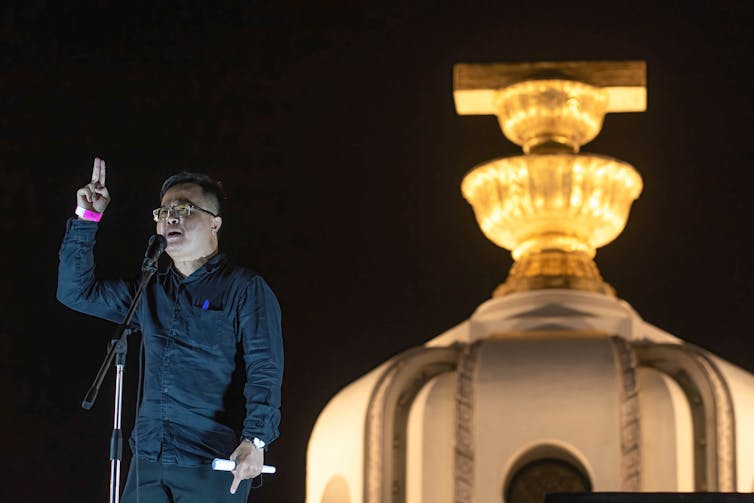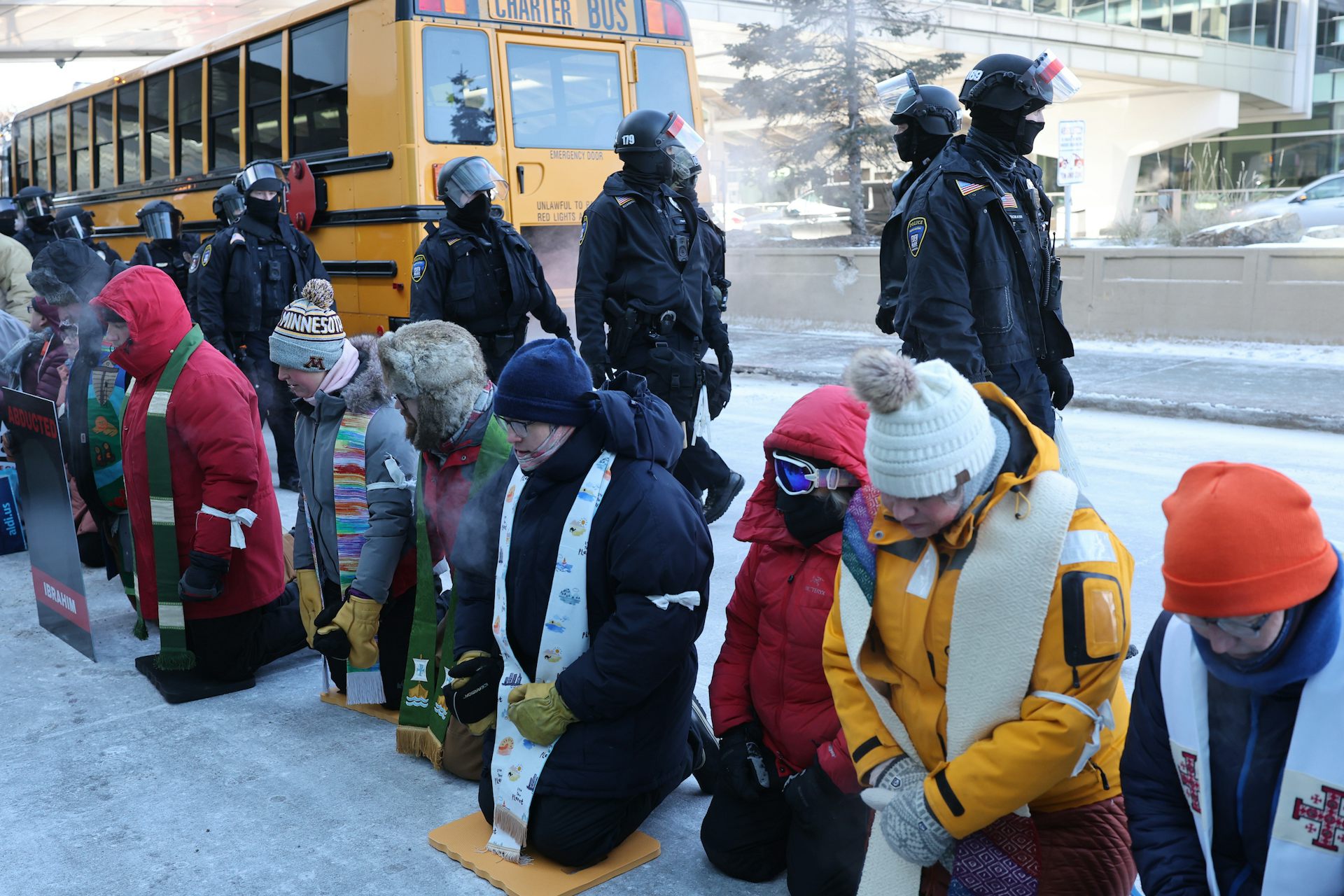Thailand’s judiciary is flexing its muscles, but away from PM’s plight, dozens of activists are at t
Prime Minister Paetongtarn Shinawatra has been suspended from office. Meanwhile, leading activists languish behind bars on ‘lèse majesté’ offenses.

Thai Prime Minister Paetongtarn Shinawatra is currently feeling the sharp end of the country’s powerful judiciary.
On July 2, 2025, Thailand’s Constitutional Court suspended Paetongtarn from office as a result of a leaked phone conversation in which she was heard disparaging Thailand’s military and showing deference to former the prime minister of Cambodia, Hun Sen, despite an ongoing border dispute between the two countries. Initially set for 14 days, many onlookers believe the court’s suspension is likely to become permanent.
Meanwhile, far from the prime minister’s office is Arnon Nampa, another Thai national whose future is at the mercy of the Thai judiciary – in this case, the Criminal Court.
Arnon, a lawyer and internationally recognized human rights defender, is one of 32 political prisoners imprisoned over “lèse majesté,” or insulting the Thai monarchy. He is currently serving a sentence of nearly 30 years for a speech questioning the monarchy during pro-democracy protests in 2020. Unless he is both acquitted in his remaining cases and his current convictions are overturned on appeal, Arnon will likely spend the rest of his life in prison.
The plights of Paetongtarn and Arnon may seem distant. But as a historian of Thai politics, I see the cases as connected by a judiciary using the law and its power to diminish the prospects for democracy in Thailand and constrain the ability of its citizens to participate freely in society.
Familiar troubles
The Shinawatra family is no stranger to the reach of both the Thai military and the country’s courts.
Paetongtarn is the third of her family to be prime minister – and could become the third to be ousted. Her father, Thaksin Shinawatra, was removed in a 2006 military coup. Her aunt, Yingluck Shinawatra, was ousted prior to the May 22, 2014, coup. In common with past coups, the juntas who fomented them were shielded from the law, with none facing prosecution.
For now, it is unclear whether Paetongtarn’s suspension is the precursor to another coup, the dissolution of parliament and new elections, or a reshuffle of the cabinet. But what is clear is that the Constitutional Court’s intervention is one of several in which the nine appointed judges are playing a critical role in the future of Thai democracy.
Protecting the monarchy
The root of the judiciary’s power can be found in the way the modern Thai nation was set up nearly 100 years ago.
On June 24, 1932, Thailand transitioned from an absolute monarchy to a constitutional monarchy. Since then, the country has experienced 13 coups, as the country has shifted from democracy to dictatorship and back again.
But throughout, the monarchy has remained a constant presence – protected by Article 112 of the Criminal Code, which defines the crime and penalty of lese majesté: “Whoever defames, insults, or threatens the king, queen, heir-apparent or regent shall be subject to three-to-fifteen years imprisonment.”
The law is widely feared among dissidents in Thailand both because it is interpreted broadly to include any speech or action that is not laudatory and innocent verdicts are rare.
Although Article 112 has been law since 1957, it was rarely used until after the 2006 coup.
Since then, cases have risen steadily and reached record levels following a youth-led movement for democracy in 2020. At least 281 people have been, or are currently being, prosecuted for alleged violation of Article 112, according to Thai Lawyers for Human Rights.
Challenging the status quo
The 2020 youth-led movement for democracy was sparked by the Constitutional Court’s dissolution of the progressive Future Forward Party at the beginning of that year, the disappearance of a Thai dissident in exile in Cambodia, and economic problems caused by the COVID-19 pandemic.
In protests in Bangkok and in provinces across the country, they called for a new election, a new constitution and an end to state repression of dissent.

On Aug. 3, 2020, Nampa added another demand: The monarchy must be openly discussed and questioned.
Without addressing such a key, unquestionable institution in the nation, Arnon argued, the struggle for democracy would inevitably fail.
This message resonated with many Thai citizens, and despite the fearsome Article 112, protests grew throughout the last months of 2020.
Students at Thammasat University, the center of student protest since the 1950s, expanded Arnon’s call into a 10-point set of demands for reform of the monarchy.
Making it clear that they did not aim to abolish the monarchy, the students’ proposal aimed to clarify the monarchy’s economic, political and military role and make it truly constitutional.
As the protests began to seem unstoppable, with tens of thousands joining, the police began cracking down on demonstrations. Many were arrested for violating anti-COVID-19 measures and other minor laws. By late November 2020, however, Article 112 charges began to be brought against Arnon and other protest leaders for their peaceful speech.
In September 2023, Arnon was convicted in his first case, and he has been behind bars since. He is joined by other political prisoners, whose numbers grow weekly as their cases move through the judicial process.
Capricious courts
Unlike Arnon, Paetongtarn Shinawatra is not facing prison.
But the Constitutional Court’s decision to suspend her from her position as prime minister because of a leaked recording of an indiscreet telephone conversation is, to many legal minds, a capricious response that has the effect of short-circuiting the democratic process.
So too, I believe, does bringing the weight of the law against Arnon and other political prisoners in Thailand who remain behind bars as the current political turmoil plays out.
Tyrell Haberkorn does not work for, consult, own shares in or receive funding from any company or organization that would benefit from this article, and has disclosed no relevant affiliations beyond their academic appointment.
Read These Next
Exiled Iranians and Venezuelans may well support regime change – but diasporas don’t always reflect
Diasporas are often treated by media and policymakers as monolithic blocs, but the reality is more complicated.
Trump administration losing credibility with judges and grand juries – a former federal judge explai
Grand juries, historically rubber stamps for prosecutors’ attempts to indict, are rejecting the Trump…
Local governments provide proof that polarization is not inevitable
Partisan debates are less heated at the local level, providing lessons that might help calm the waters…






